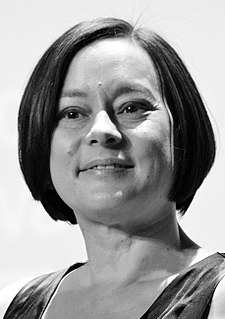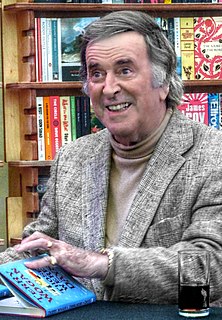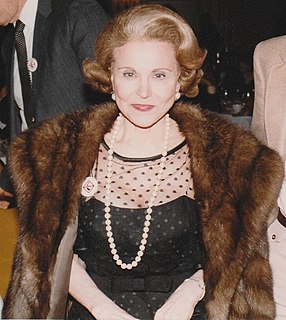A Quote by Meg Tilly
I think it is important to say that though, of course, it is wonderful to have children, it is a disservice to others not to also say how hard it is to do it alone.
Related Quotes
I love Brooke Shields. She's developed into a wonderful actress and a wonderful person. We were all babies then in Brenda Starr. That's why when people say, "What did you think of that film?" I can't do what people do and say, "I hated it." I can't speak ill of a film, because it's so hard to make a film. Everybody thinks we're sitting by a pool peeling grapes, and this is not the case. It's hard. It's hard to do this stuff - and getting harder!
From the very beginning, all of my films have divided the critics. Some have thought them wonderful, and others have found very little good to say. But subsequent critical opinion has always resulted in a very remarkable shift to the favorable. In one instance, the same critic who originally rapped the film has several years later put it on an all-time best list. But of course, the lasting and ultimately most important reputation of a film is not based on reviews, but on what, if anything, people say about it over the years, and on how much affection for it they have.
We are all alone, born alone, die alone, and -- in spite of True Romance magazines -- we shall all someday look back on our lives and see that, in spite of our company, we were alone the whole way. I do not say lonely -- at least, not all the time -- but essentially, and finally, alone. This is what makes your self-respect so important, and I don't see how you can respect yourself if you must look in the hearts and minds of others for your happiness.
When I started out as an actor, I thought, Here's what I have to say; how shall I say it? I began to understand that what I do in the scene is not as important as what happens between me and the other person. And listening is what lets it happen. It's almost always the other person who causes you to say what you say next. You don't have to figure out how you'll say it. You have to listen so simply, so innocently, that the other person brings about a change in you that makes you say it and informs the way you say it.
What's important is the way we say it. Art is all about craftsmanship. Others can interpret craftsmanship as style if they wish. Style is what unites memory or recollection, ideology, sentiment, nostalgia, presentiment, to the way we express all that. It's not what we say but how we say it that matters.
I don't change the language for children books. I don't make the language simpler. I use words that they might have to look up in the dictionary. The books are shorter, but there's just not that much difference other than that to be honest. And the funny thing is, I have adult writer friends [to whom I would say], "Would you think of writing a children's book?" and they go, "No, God, I wouldn't know how." They're quite intimidated by the concept of it. And when I say to children's books writers, would they write an adult book, they say no because they think they're too good for it.
Others would say to me, 'It is only temporary, it will pass, you will get over it,' but of course they had no idea how I felt, although they were certain that they did. Over and over and over I would say to myself, If I can't feel, if I can't move, if I can't think, and I can't care, then what conceivable point is there in living?



































